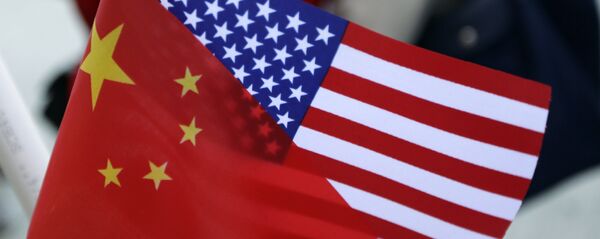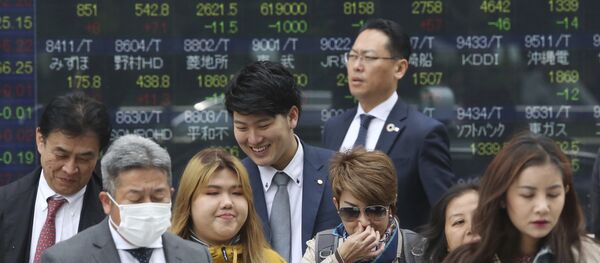Kristian Rouz – A new report from the Organisation for Economic Cooperation and Development (OECD) warns against further escalations in international trade tensions, protectionist tariffs, and the excessive use of non-tariff restrictions, suggesting that the pace of global economic expansion could suffer as a result.
READ MORE: European Central Bank (ECB) Faces Leadership Struggle Amid Slowing Eurozone GDP
OECD experts found that even when trade restrictions are introduced in compliance with international standards, such measures tend to affect the volume of global trade, weighing on consumer demand worldwide, and hindering total economic output in both advanced and developing nations.
“Let’s avoid complacency at all costs,” OECD Secretary-General Angel Gurria said. “Clearly the biggest threat is through the escalation of trade restriction measures, and this is happening as we speak. This clear and present danger could easily have knock-on effects.”
Gurria said the main concern is the ongoing trade dispute between the US and China, which is already affecting third-party countries as well. However, the OECD believes disruptions in trade between smaller economies could add to the downward pressure on the pace of global economic growth.
Disruptions in well-established trade links could prompt some nations to try to substitute imports with domestic products, and sell their otherwise export-oriented products domestically, but existing imbalances in output volumes could make such attempts quite painful for years to come.
As a result, employment and wages in the export-oriented industries might suffer, while the rising cost of imports could drive inflation across many economies, impairing the standards of living of hundreds of millions of people
“To put it bluntly, this cannot be the new normal,” OECD chief economist Laurence Boone said. “We cannot accept an economy that doesn’t raise people’s living standards.”
OECD economists believe that global GDP will expand by 3.2 percent this year, its slowest in three years, and below the 5-percent average expansion at the beginning of the 2000s.
Experts also called on the US and China to remove their recently-imposed tariffs, which would, they believe, allow the world economy to pick up momentum next year. However, the Trump administration has made it clear it wouldn't tolerate China's alleged practices of dumping cheaper products in the American market, as well as the alleged abuse of intellectual property rights, and other perceived transgressions.
"Global trade growth has already fallen markedly, from 5.5 percent in 2017 to projected rates of 2.1 percent in 2019 and 3.1 percent in 2020,” Gurria said. “It should be growing at double the rate of GDP (growth).”
For its part, China has struggled to reform its economy for the past few years, to make it less reliant on foreign trade. Such efforts at 'growth rebalancing' have produced limited results so far.
There is still little certainty regarding whether China, along with other emerging markets, will be able to successfully adapt to this new reality. Meanwhile, economists say the well-being of the majority of the world's population depends on trade, and the lingering conflicts threaten to increase global poverty.
Additionally, trade uncertainty is hurting investment across emerging markets, with international wealth managers opting to pull their money from countries at risk, and seeking less profitable, yet safer options in the US, Western Europe, or Japan.
"The current cycle of trade disputes is hurting manufacturing, disrupting global value chains and generating significant uncertainty that is weighing on investment decisions, and highlights the risk of further disruption," the OECD said in a recent report.
Economists believe that if trade tensions escalate, the majority of third-world countries will no longer be able to grow their economies through commodity exports, the exploitation of dirt-cheap factory labour, or unlimited borrowing – or a combination of the three.
Such nations would require reforms to become more self-sufficient, or face poverty; widespread corruption makes the latter more likely.




